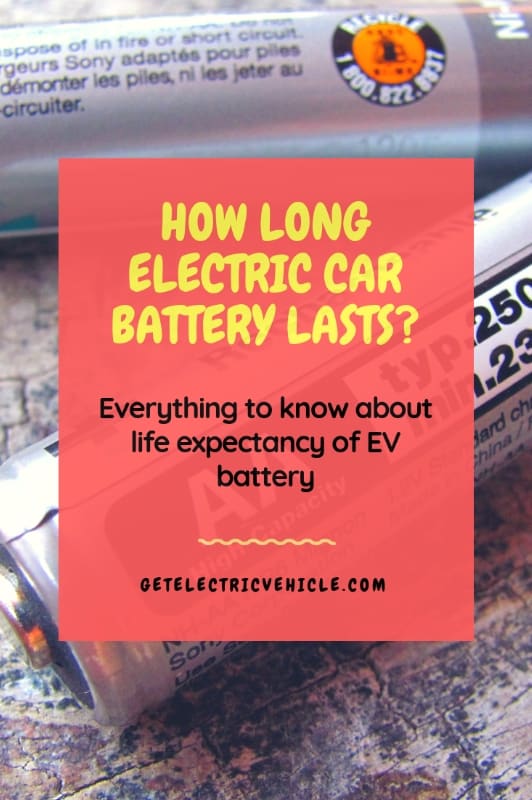

Electric vehicle batteries store electric energy that converted to mechanical energy to propel the vehicle. Electric car battery life expectancy matters since they are an expensive component in an electric vehicle. Overall life and cost of an electric car increases if the battery lasts shorter.
This is the second part of Electric Car Life Expectancy Blog series. In the first part, we had discussed electric car motor life expectancy.
In this post, we are going to discuss electric vehicle battery life expectancy. And the third part would explain the life of other components of an electric vehicle and the total life expectancy in a generic way.
Electric Car Life Expectancy – Blog Series
This is the first part of Electric Car Life Expectancy blog series
- Life expectancy of electric car motor
- Life expectancy of electric car battery
- Life expectancy of electric vehicle components
Electric car batteries stores electric energy and delivers to the electric machines to convert to mechanical energy.
The distance that could travel by an electric vehicle depends on the capacity of the battery. The component in an EV, that is most expensive and important is the energy storage system (battery).
Lithium-ion, lead-acid, Nickel Metal hydride, etc. are a few battery technologies used in an electric vehicle. We explained different types of batteries in an electric vehicle earlier. The commonly used electric vehicle battery is a Lithium-ion battery.
Electric car battery life expectancy
Life of an electric vehicle battery is represented based on the number of charge-discharge cycles and the number of years it lasts.
Following are the two terms to represent the life of the battery.
- Cyclic life
- Calendar life
1. Cyclic life
Cyclic life of a battery is defined as the number of complete charge-discharge cycles a battery could complete before its normal capacity falls below 80% of its initial capacity.
A typical Li-ion battery lasts for 300-500 charging-discharging cycles.
2. Calendar life
Number of calendar years a battery lasts before its capacity fades below 80% of the initial rated capacity. Electric vehicle batteries will not charge and discharge completely every day.
Cyclic life of electric car battery along with the calendar life indicates the durability of the battery. Warranty of battery that provided by the manufactures is in years rather than cyclic life.
There is another term Shelf life of the battery which is the calendar years an unused battery lasts.
Factors affecting Electric Vehicle battery life
Life of an electric vehicle battery depends on many factors. Important factors that considerably influences the life of electric car battery are
- Rate of discharging and charging – low rate of charging and discharging increases the life of a battery
- Temperature – Operating battery at elevated temperature improves performance but reduces the life
- Number of charge-discharge cycles – Number of charge-discharge cycles reduces the calendar life
- Humidity
- Depth of discharge – If a battery continuously discharges to a lower state of charge, its life reduces
Conclusion
The electric vehicle battery is an important component that decides the economic viability of an EV. The life expectancy of electric car battery getting increased due to the development of advanced technologies.
Cost of the batteries also shows a reduction in the last 2 years. Many factors affect the life of the battery. Temperature, rate of charge and discharge, etc. are a few among them.
In this post, we discussed the life of the battery in an electric vehicle. Next post will be about the life expectancy of other components in an electric car.
Key points
- Life of battery affects the overall cost of the electric vehicle
- There are two factors represent the life of the battery – Calendar life and cyclic life
- Temperature, rate of charge and discharge, depth of discharge, etc. affects the life of the battery
Next post: Life Expectancy of Electric Car Components
Unfortunately your conclusion did not contain an estimated average battery life which negates the whole purpose of your article. the fact that EV manufacturers provide a warranty on their batteries should give an indication of what to expect. l believe Nissan offer a 7 year warranty on one of their EV’s is worth noting.